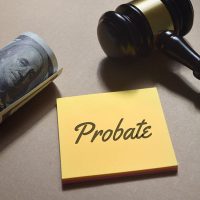Probate In Massachusetts: What To Know About Creditor Notification Requirements

When a person passes away in Massachusetts, their estate must be administered wherein creditors claims are satisfied, taxes (if any) and expenses paid, and then remaining assets distributed. The estate administration process, which may involve filing the decedent’s Last Will and Testament for probate, has many steps. In this article, our Norwood probate lawyers explain the key things you should understand about estate administration with regard to creditor notification requirements in Massachusetts.
Massachusetts Lacks Formal Creditor Notification Requirements
Unlike the majority of U.S. states, Massachusetts does not have a formal creditor notification requirement from the fiduciaries who are handling probate or estate administration. That being said, the Commonwealth does have some requirements in place to ensure that creditors are made aware of a decedent’s passing and the opportunity to make claims against the estate.
Publication of Probate/Estate Administration is Required
While Massachusetts does not require the Personal Representative of the estate to directly notify creditors, state law does mandate that the Personal Representative publish notice in a local newspaper. This publication is meant to inform the general public and potential creditors of the death of the decedent and the filing of a probate, as creditors have one year from the date of death to file a claim in the probate matter. Failure to file a claim within the prescribed timeframe will bar the claim.
As a general rule, Publication must occur one time at least seven days before the return date of the citation. In addition, if an Interested Person (as defined under the Massachusetts Uniform Probate Code) has not assented to the petition or waived notice by a writing filed with the court, notice, that is a copy of the citation, must be delivered in hand or mail at least fourteen days before the return date. A copy of the citation must be delivered or mailed to the attorney general if there are charitable bequests under the will or under a trust or if there are no known heirs at law.
Massachusetts Law: Creditors Have One Year to Assert their Claims
Under Massachusetts law (MA Gen L ch 190B § 3-803), creditors have one year from the date of the decedent’s death to assert their claims against the estate. This is a shorter time frame than in many other states, which often allow creditors two or more years to make their claims. Within this one-year period, creditors must present their claims to the personal representative in writing, detailing the nature and amount of the debt. MassHealth, as a creditor of the estate, is not subject to this one year deadline and has three years from the date of death to file a claim in the matter.
A Lawyer Can Help You Navigate Creditor Issues in Probate and Estate Administration
The probate and estate administration process is complex. You and your family do not have to navigate probate issues involving creditors alone. The right legal advocate on your side can make the process a lot easier. A top Boston probate and estate administration attorney at Fisher Law LLC will ensure that your rights and your interests are protected each and every step of the way.
Get Help From Our Boston Area Probate Law Attorney Today
At Fisher Law LLC, our Massachusetts probate lawyers are committed to helping our clients navigate the complexities of the estate administration process. If you have any questions about the Commonwealth’s creditor notification requirements, we are here to help. Contact us today to set up your fully confidential, no commitment initial consultation. Our firm provides probate and estate administration services throughout the Greater Boston metropolitan area.
Source:
malegislature.gov/Laws/GeneralLaws/PartII/TitleII/Chapter190B/ArticleIII/Section3-803
